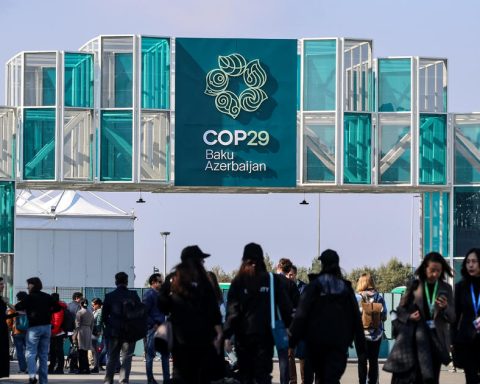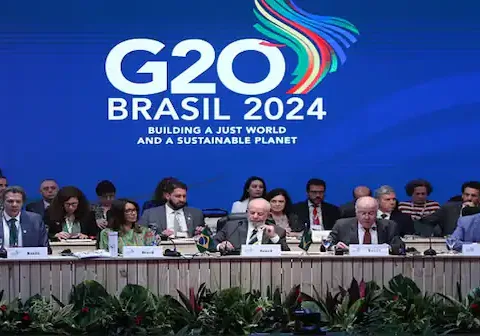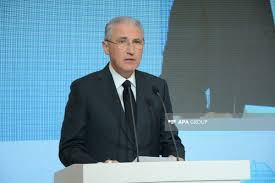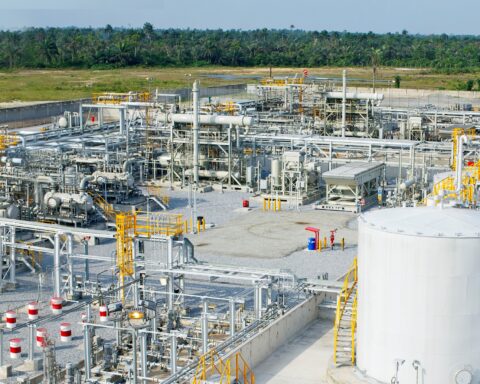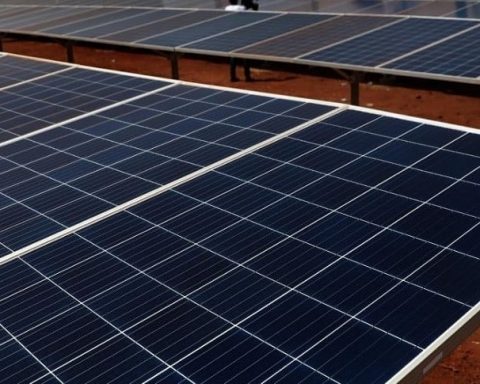Health of Mother Earth Foundation (HOMEF), and Corporate Accountability and Public Participation Africa (CAPPA), have renewed the call for more sustainable financing of to mitigate the impact of climate change in developing countries by industrialised nations.
They made the call at a press briefing in Abuja, on the outcome of the recently concluded 29th session of the Conference of Parties (COP29) of the United Nations Framework Convention on Climate Change (UNFCCC).
Join our WhatsApp ChannelDuring the COP29 which held in Baku, Azerbaijan from November 10 to 24, 2024, an agreement was reached, calling on developed countries to deliver at least $300 billion per year to developing countries by 2035 to drastically reduce greenhouse gas emissions and protect lives and livelihoods from the rising impacts of climate change.
The CSOs expressed support for the UNFCCC’s Common But Differentiated Responsibilities (CBDR) which requires rich and highly polluting nations that contributed disproportionately to greenhouse gases in the atmosphere to own up to their historical responsibility, cut emissions at source and provide finance to help vulnerable nations that have not significantly contributed to the climate crisis.
HOMEF and CAPPA said the conference failed in terms of financing commitment by industrialised nationals to the global south.
They said: “COP29 failed spectacularly on the finance note and the leader of the Nigerian delegation rightly called the minuscule amount offered an insult.”
According to them, the COP failed to heed the call by vulnerable nations, global civil society and indigenous peoples “for rich and historically responsible nations to Pay Up and to do so in Trillions not Billions.”
They expressed concerns that the mode of financing chosen for the release of the promised $300 billion would include loan which would increase the debt burdens of the developing countries.
“Another concern is that even the promised $300 billion may come through so-called innovative financial sources that include loans and would increase the already huge debt burdens of the poor countries.”
The CSOs opined that they could strategically raise more than $5 trillion annually for climate finance through Halting fossil fuel subsidies and holding polluters accountable among others.
“Climate finance can readily be raised by redirecting funds from military expenditure that saw rich nations spend up to $2.4 trillion in 2023. Halting fossil fuel subsidies and holding polluters accountable would raise more than $5 trillion annually. So, the problem is not a lack of cash, but a matter of priority.”
The groups criticised the 2015 Paris Climate Conference’s nationally determined contributions (NDCs) policy, which requires nations to cut their greenhouse gas emissions as part of mitigating climate change.
According to them Emissions Gap reports issued by the United Nations Environment Programme (UNEP) in 2023 and 2024 “clearly show that if nations carry out their NDCs, the world will experience temperature increases far above the 1.5C and 2.0C targets set by the Paris Agreement.”
On his part, HOMEF’s Executive Director, Nnimmo Bassey, said: “Scientists inform us that 2024 is the hottest year on record. The year has also recorded a high number of disastrous weather events.”
READ ALSO: COP29 And Climate Geopolitics
Additionally, they denounced the adoption of carbon markets in the developing world as a means of addressing climate change, calling it a deceptive solution that gives polluters and fossil fuel companies a lifeline by allowing them to purchase the licence to continue polluting.
“Some countries have mortgaged their forests to carbon speculators with some ceding up to 10 and 20 percent of their total land mass,” they said, warning against what they called “Carbon Colonialism” and the resulting land grab on the African continent.
On the way forward, the group made 14 recommendations, including “community-led solutions to halt pollution at the source, ensure the sovereignty of our peoples over their forests, water bodies and general territories.”
They called for an end to what they described as “false solutions” and demanded that oil and gas industry leaders should begin to take practical steps towards phasing out fossil fuels.
“Communities and nations that have kept fossil fuels in the ground should be recognized as climate champions and duly compensated for such actions.”
They also demanded an urgent clean-up of areas polluted by fossil fuel exploitation and provision of clean renewable energy to energy-poor communities.
“Nigeria and other African countries should place a ban on geoengineering experimentations, including solar radiation management, ocean fertilization, rock weathering and others.”
They also emphasised that Human rights must be upheld, gender-responsive initiatives included, and communities must be fairly represented in decision-making processes for energy and other transition programmes.



